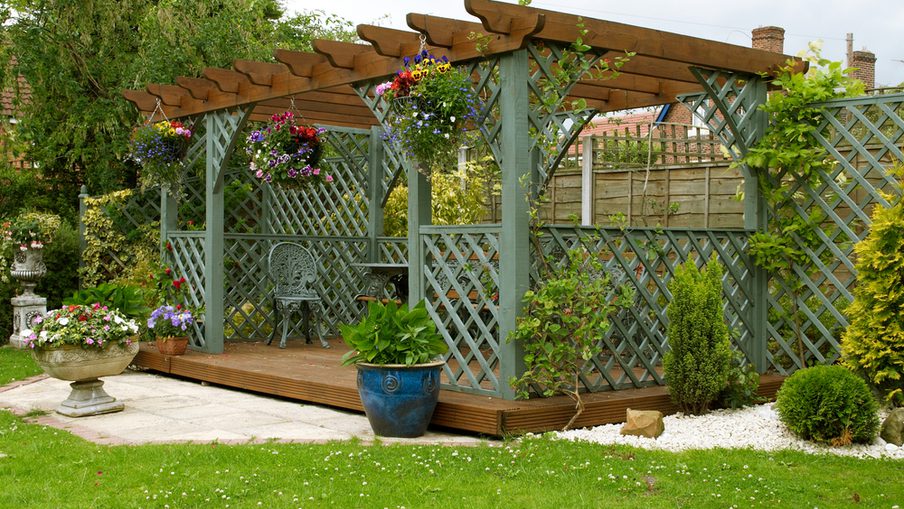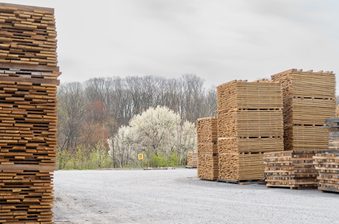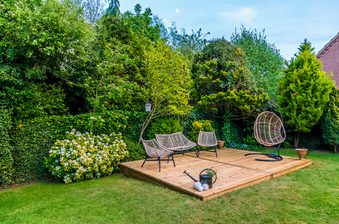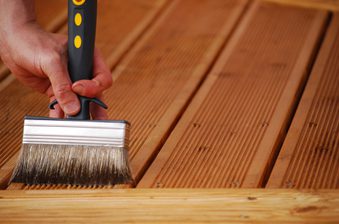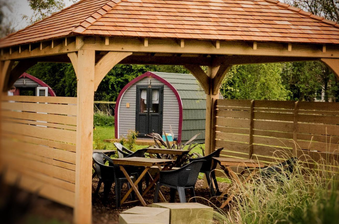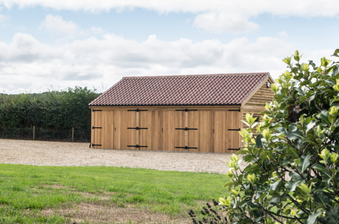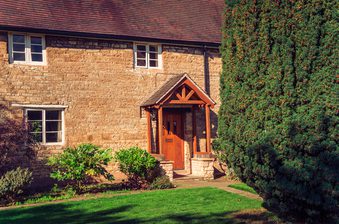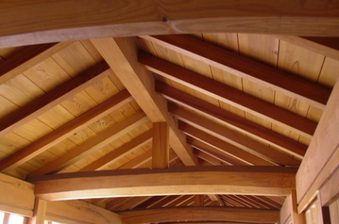A pergola — great for adding a classy touch to your outdoor space. But what are the top timbers for the job?
A very popular way of creating a beautiful shaded or sheltered area over decking or a patio, pergolas are perfect for framing a walkway in your garden.
Originally created by Italian Renaissance architects to mimic the villas of the Roman Empire, they add a stylish, Mediterranean touch to any outdoor space. As well as offering a practical element, they allow your garden to be enjoyed throughout the year for dining and relaxation.
When incorporated sympathetically, they can even increase home value, allowing you to distinguish certain areas, create themes or green screens.
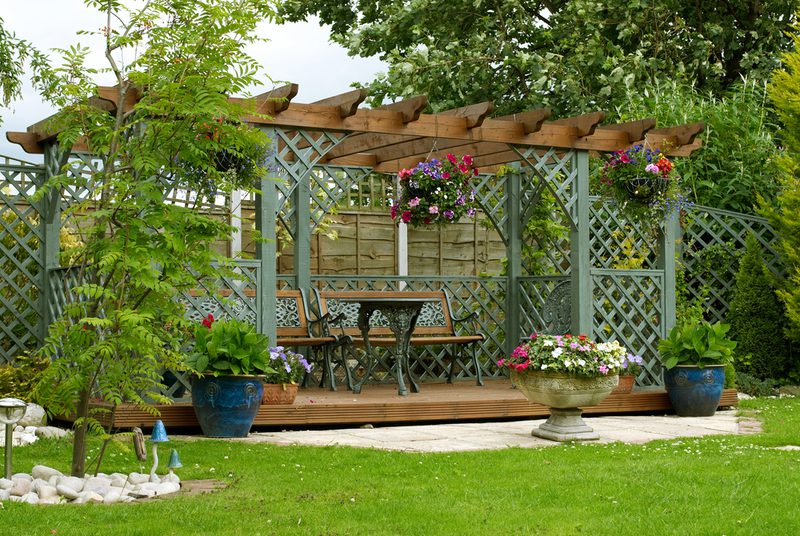
Although brick and stone pergolas aren’t unheard of, wood is by far the most popular material for these versatile garden structures. As well as looking the part, timber slots seamlessly into any exterior space, complementing surrounding greenery and conveying an effortless natural look.
What is the best wood to use for a pergola?
So, what timber do I need to build a pergola?
Throughout the year, British weather throws a fair few challenges the way of our outdoor furniture. So, to do a good job, your wood needs durability — rot, insect and moisture resistance — as well as density and scratch resistance.
Fortunately, many species of wood are naturally blessed with these properties, and these should be your go-to choices.
1. European Green Oak
If you’re looking for a beautiful, durable, on-trend timber that’s stood the test of time, look no further than fresh sawn oak.
A pergola made of European Green Oak frames a garden perfectly with its natural aesthetic and clean, light straw colour. As a species, it’s been used for structural construction for hundreds of years, but is now increasingly catching the eye of many architects as a versatile timber for oak-framed buildings.
European Green Oak ticks all the right boxes. Strong, sturdy and durable, with excellent natural resistance to insect infestation, moisture and decay — everything you want from a pergola.
This wood is essentially maintenance free, and can be left to age gracefully to a classy silvery-grey. But with the occasional lick of preservative, an oak pergola will provide you with many, many years of high-quality service.
2. Western Red Cedar
Western Red Cedar is one of the most popular timbers for a pergola. Naturally stunning, it has an irresistible reddish-brown colour — often with pink hues — slotting seamlessly into almost any outdoor project.
Native to Canada, cedar has good strength and, most importantly, boasts a range of important properties that give it natural protection from the elements. High in resin and oils, cedar repels dirt, insects, rot and decay — suiting it ideally to those wet British winters.
Like oak, cedar can be left for several years without treatment to attain that classic silver colour.
3. Tropical hardwoods
If you’re looking to push the boat out, you could also opt for an exotic hardwood for your pergola.
Take a look at Iroko, Cumaru and Sapele as examples of some stunning African timbers. Although you’ll be at the pricier end of the spectrum, the end result will be second to none — a highly unique, one-of-a-kind pergola that’s a luxury centerpiece of your garden.
Architects and designers don’t prize these timbers simply for their looks; they also perform fantastically. Typically very slow-growing, these woods are imbued with top-notch natural durability and impeccable strength and density.
A gorgeous tropical hardwood is your ticket to creating a pergola that’s especially different.
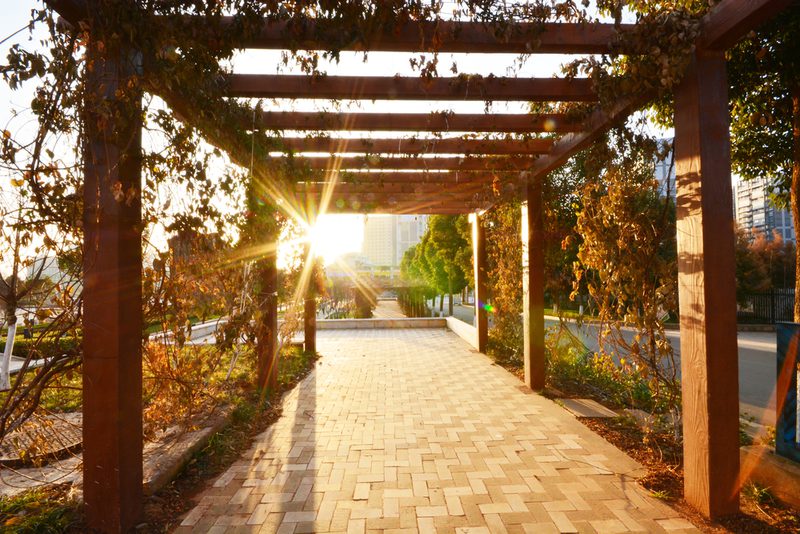
Maintaining and cleaning a pergola
Fortunately, if you’ve chosen one of the terrific timbers listed above, your pergola will require very little upkeep. The natural oils these woods provide a great deal of protection from the elements.
Eventually, however, all timber weathers to a silvery-grey after several years of outdoors exposure. If you’re looking to maximise longevity, consider applying a clear oil-based protection to seal your pergola. These transparent preservatives give your pergola some a handy bit of additional weather resistance. Treating your pergola is best done during a dry season when moisture and humidity are at a low, ideally every two-to-four years.
Of course, make sure to clean down your pergola first. After a hose down, any stubborn dirt and stains can be removed with a mild soap, water and bristle brush. Of course, make sure to remove any debris that has accumulated near the grooves.
In the case of mildew, use a combination of mild bleach and water. After hosing down again, make sure the pergola is completely dry before you apply any preservatives.
Should I use pressure-treated wood for a pergola?
When planning for their garden, many people are drawn towards pressure-treated wood. Usually, these woods provide more upfront cost savings than one of the timbers listed above.
Although they can be viable, it’s worth bearing in mind that the chemicals used to treat these timbers can be harmful to pets and little ones. Pressure-treated woods also tend to have a somewhat unappealing green and blue streaky appearance, and can quickly require frequent maintenance — they’re not naturally weather resistant.
When you’re contemplating your pergola project, it can be worth remembering the saying ‘buy cheap, buy twice’. A high-quality pergola, made of the right naturally-durable timber species, can give you many decades of service — negating the need for pressure-treated wood.
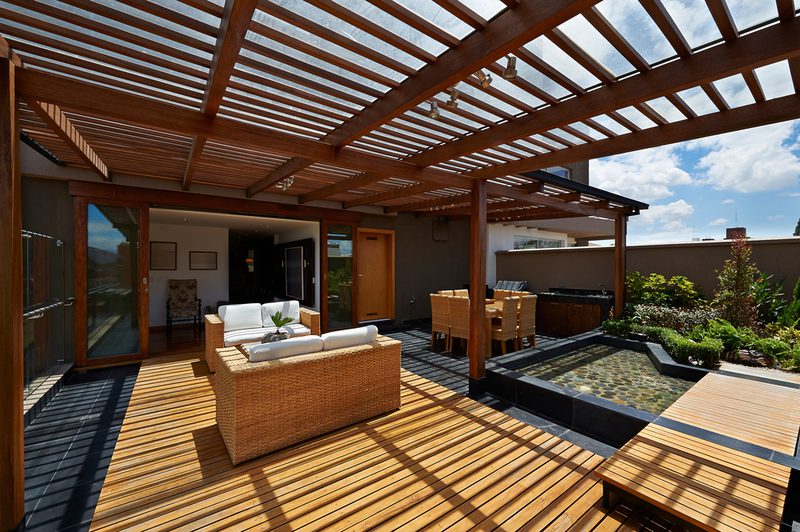
I’d like a pergola for my outdoor space — what next?
Timeless, elegant, understated; what’s not to love about pergolas? But where to start… If you’re looking to save time, money and potentially stress, consider opting for a pergola kit for a superb, great-looking end product.
Our pergola kits are created from high-quality European Green Oak, with all components precision CNC-machined, mortise-and-tenon jointed as well as grooved and shaped. Coming with assembly instructions, labelled parts and pegs, you’re guaranteed a quick, simple installation.
If you’re looking to make your own from scratch, we stock a wide range of high-quality sawn timber and oak beams. Our team of timber experts would be delighted to advise you on your project.
Take your garden to the next level with Duffield Timber. Excellence, from forest to finish. Get in touch to discuss your vision.
